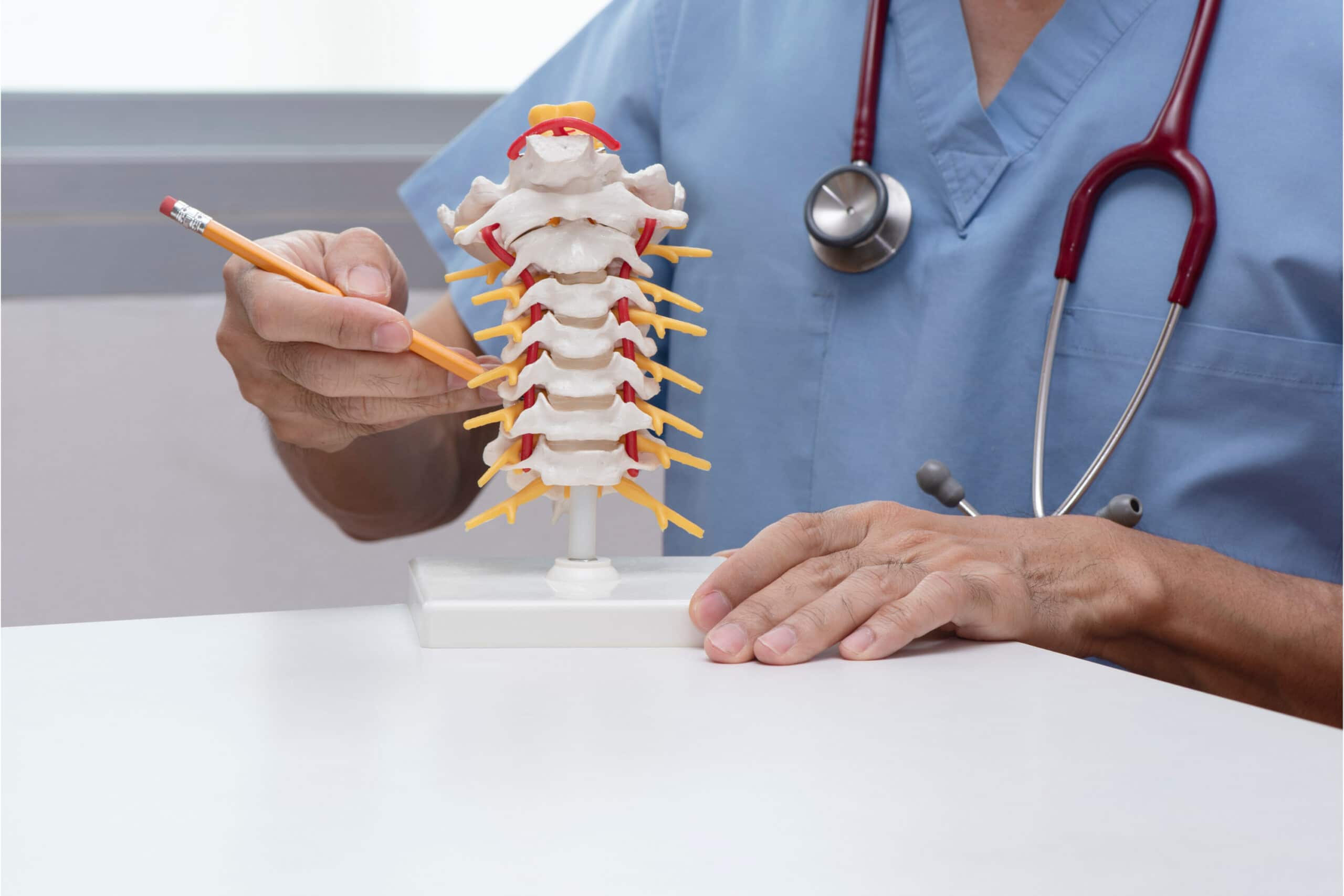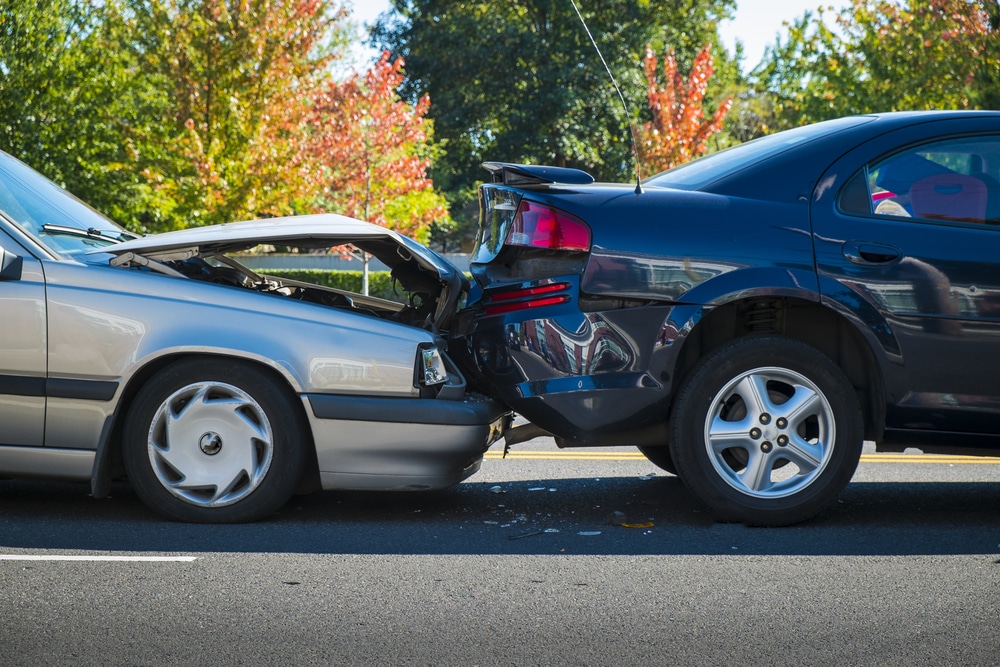After getting into a car accident, victims deserve to receive prompt medical treatment. Even a minor fender bender may leave a person with broken bones, soft tissue injuries, neck injuries, spinal injuries, or worse. Understanding that hurt and recommended treatment options puts patients on the road to recovery.
No-Fault Doctors wants to break down the most common rear end collision injuries and their treatments. Let us help you heal from an unfortunate incident with exemplary medical care and useful information.
Whiplash

You may already know how many auto accident victims experience whiplash. When the force of a car crash whips a person’s head and neck forward and back, soft tissues in the neck, head, and even the upper back may tear because of the violent motion.
When rear-end car crash victims do not notice the vehicle about to slam into them, they could suffer severe whiplash if they do not brace themselves. Individuals may suffer severe whiplash trauma if the head, back, and neck move violently – causing neck pain.
Medical Treatment Options
Patients diagnosed with whiplash by a no-fault doctor may undergo a computed tomography (CT) scan, X-rays or other diagnostic tests as part of a thorough examination. An at-home treatment regime could include resting for one or two days, applying heat or cold to the injury site, using over-the-counter medication for pain and receiving numbing injections to treat tight muscles.
A car accident doctor could recommend short-term prescription medication, such as nerve pain medication and muscle relaxers, as part of a pain treatment plan.
Instead of recommending a cervical collar to a patient with a hyperextended neck, medical professionals now suggest at-home exercises to help individuals regain their natural range of motion, ease pain and relax tight muscles. Those who need additional help may undergo physical therapy or spinal surgery.
Spine Injuries

Rear-end car accidents may wreak havoc on a person’s back, resulting in serious injuries and spinal trauma. High-speed rear-end accidents may trigger a spinal fracture, which could displace the vertebrae and compress nerves. Getting hit in the rear may also lead to a herniated disc, also called a slipped disc.
Many auto accident injuries of the spine could leave a victim fully or partially paralyzed. The degree of paralysis a person experiences depends on the area of the spine affected, but the risk often increases when parts of the brain and spinal discs endure trauma.
Medical Treatment Options
Most rear-end collision injuries to the spine in the neck area cause numbness, pain and “pins and needles” in the neck and arms. Medical professionals treat spinal cord injuries much like how they address whiplash, and most cervical disc injuries resolve within six to eight weeks.
Patients who do not respond to conservative non-surgical treatment may undergo a medical procedure, such as Anterior Cervical Discectomy & Fusion. The surgery involves removing damaged tissue through the front of the neck and easing pressure on local nerves. A graft replaces the extracted disc.
Other than numbness and pain, herniated disc injuries could make a person lose control of her or his bladder or bowels. Patients may only need a few weeks or months of conservative non-surgical treatment. Damaged discs that press on nerve roots may require a spinal decompression procedure.
Brain & Head Injuries

Car crash victims who suspect something hit them in the head or hit their heads on the dashboard or window during the collision should let a no-fault doctor check them. Head injuries may concuss a person, force a person to pass out, or indicate a traumatic brain injury (TBI). External symptoms associated with head and brain injuries include cuts, bruises and swelling.
Common signs of a traumatic brain injury (TBI) include impaired speech, dizziness, chronic fatigue, odd shifts in behavior, and trouble concentrating.
Medical Treatment Options
A mild concussion or brain injury may only require a few days of rest. Those with lingering concussion symptoms, such as trouble sleeping, headaches and dizziness, may have post-concussive syndrome.
The health condition could impair a person’s ability to learn and comprehend new information, think, process emotions and follow instructions. Those with post-concussive syndrome, which may last months or years, often need a personalized treatment plan that fits their needs. It’s always best to visit your local emergency room, urgent care facility, your primary care physician, or an experienced no-fault doctor after a car crash. You might feel fine, but some auto accident symptoms may be delayed for a few hours or days.
Arm Fracture & Dislocation

A rear-end car crash may injure a person’s arm or hand, such as when the airbag inflates rapidly. Accident victims slammed against the car door and those who hold the steering wheel during the impact may suffer a dislocated shoulder. The force of the accident may also damage ligaments, muscles and tendons in the shoulder.
Medical Treatment Options
Depending on the shoulder dislocation, a doctor could pop it back into place and give the patient a sling and suggest ice, physical therapy and over-the-counter pain medication. A doctor could recommend surgery to treat a shoulder injury. If so, the patient may spend several months healing and undergoing pain management treatment. After the treatment, the patient must keep the shoulder still for four to six weeks and undergo rehabilitation.
Treatment for wrist fractures depends on the patient’s age and the injury’s severity. Less-severe trauma may only need a splint or cast worn for four to six weeks, physical therapy and an at-home exercise routine. Some broken wrists require pins to keep the bones steady.
Considerations for Rear-End Collision Injuries

After any car crash, you may think you feel fine and put off letting a doctor see you. It makes sense to make an appointment ASAP because you could have delayed injuries that take a few days, weeks or even months to appear. The longer you go untreated, the worse your injuries could become, which may complicate your treatment and recovery. Imagine attributing delayed injuries to something else, such as bad posture or stress.
You could try various at-home treatments and not see results or only experience temporary results. Let an experienced medical professional check you out and make a professional treatment recommendation.
Contact a Car Injury Doctor Today

No-Fault Doctors is here to treat your personal injury with effective, trusted medical treatments and technology. If you are a personal injury attorney or a workers’ comp lawyer looking to find the right doctor after an accident who accepts medical liens or LOP (letter of protection), you’ve come to the right place. To get help finding a knowledgeable car accident doctor in New York or New Jersey call 888-970-5065 or submit an online form.
